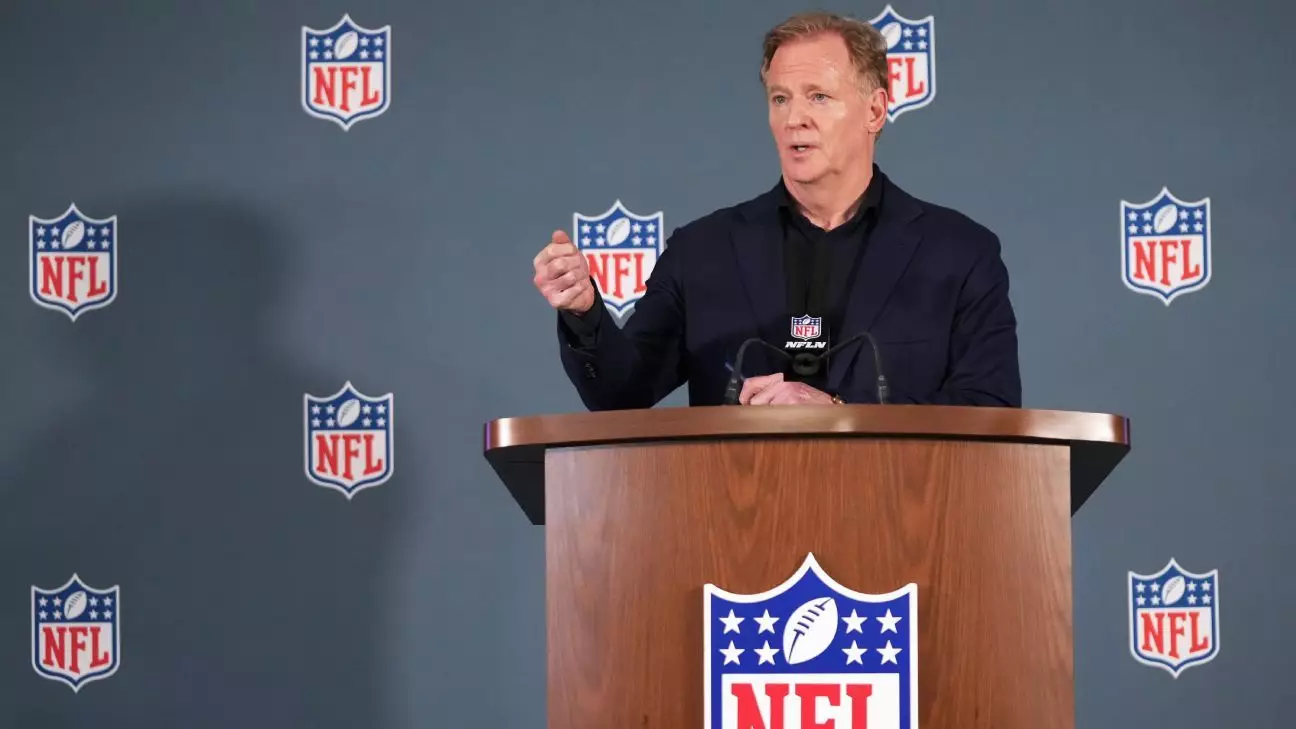The NFL, long synonymous with high-impact collisions and gridiron glory, is now poised to usher in a new era by endorsing flag football as an Olympic sport for the 2028 Los Angeles Games. This move has generated palpable excitement among players, many of whom are eager to showcase their skills on an international stage. Roger Goodell, the NFL commissioner, noted the enthusiasm from athletes regarding representing their countries, expressing optimism that this could be more than just a pipe dream. The inclusion of flag football is seen not only as a chance for athletes but also as a strategic initiative to globalize American football, a sport that has historically thrived primarily within the United States.
The introduction of flag football is a testament to the NFL’s innovative approach to growth. By embracing a non-contact format, the league acknowledges the complexities of modern sports culture, where safety and inclusiveness often take precedence over traditional playing styles. This pivot also opens the door for broader participation. Unlike tackle football, which has stringent physical demands, flag football can be accessible to a wider demographic, thus enhancing the sport’s appeal.
Navigating Challenges on the Road to the Olympics
However, while the prospect of Olympic participation is thrilling, it’s not without its hurdles. One of the paramount concerns is the scheduling conflict between the Games and the start of the NFL’s training camps. The Olympics are set to run from July 14 to 30, 2028, a period that overlaps dangerously with the late summer preparations for the NFL season. Goodell has acknowledged these logistical concerns and underscored the necessity of working closely with team owners and player unions to iron out potential issues regarding player commitments and health protections.
Furthermore, the conversation surrounding the players’ safety cannot be understated. The NFL has been under increasing scrutiny over player safety, particularly in light of the long-term effects of concussions and injuries that are prevalent in contact sports. As flag football remains a physical endeavor, albeit less dangerous than its tackle counterpart, the league must ensure that appropriate safeguards are put in place for participating athletes to mitigate any inherent risks.
Diversity Initiatives and the Road Ahead
Beyond the Olympic discussions, Goodell has faced pressing questions regarding the league’s diversity efforts against a backdrop of national discord about equity and representation. The NFL’s ongoing commitment to these initiatives is commendable but must translate into tangible outcomes. As the number of Black offensive coordinators dwindles—currently zero— Goodell must contend with criticisms that suggest a stagnation in diversity at critical levels within the league. His assertion that diverse leadership enhances organizational success is not just a platitude but a necessary truth in a modern sports league seeking relevance and evolution.
In response to the Rooney Rule, which mandates that teams interview underrepresented candidates, the endorsement from influential owners like Jerry Jones signals a collective recognition of its importance. However, the effectiveness of such measures must be scrutinized continuously; mere compliance is not enough. The NFL’s leadership must push for a culture where diversity is both a priority and a practiced principle, fostering an environment where diverse perspectives are genuinely integrated into decision-making processes.
Accountability Amidst Controversies
In the midst of these promising discussions, the league also grapples with serious allegations against individual players, such as the ongoing investigation into Baltimore Ravens kicker Justin Tucker. With multiple accusations of inappropriate conduct hanging over the league, Goodell reaffirmed that these matters are under review, demonstrating the importance of accountability within the organization. As the NFL works toward an optimistic future with flag football and diversity initiatives, it must also confront uncomfortable truths about the behavior of some of its most prominent figures.
This intricate dual narrative of advancement and accountability speaks volumes about the evolution of the NFL from a traditional bastion of American sports culture toward a more inclusive and internationally-minded entity. As the league navigates these transformative waters, the potential for growth and enrichment is immense, but only if genuine efforts are made to address both the triumphs and trials of this multifaceted journey.

